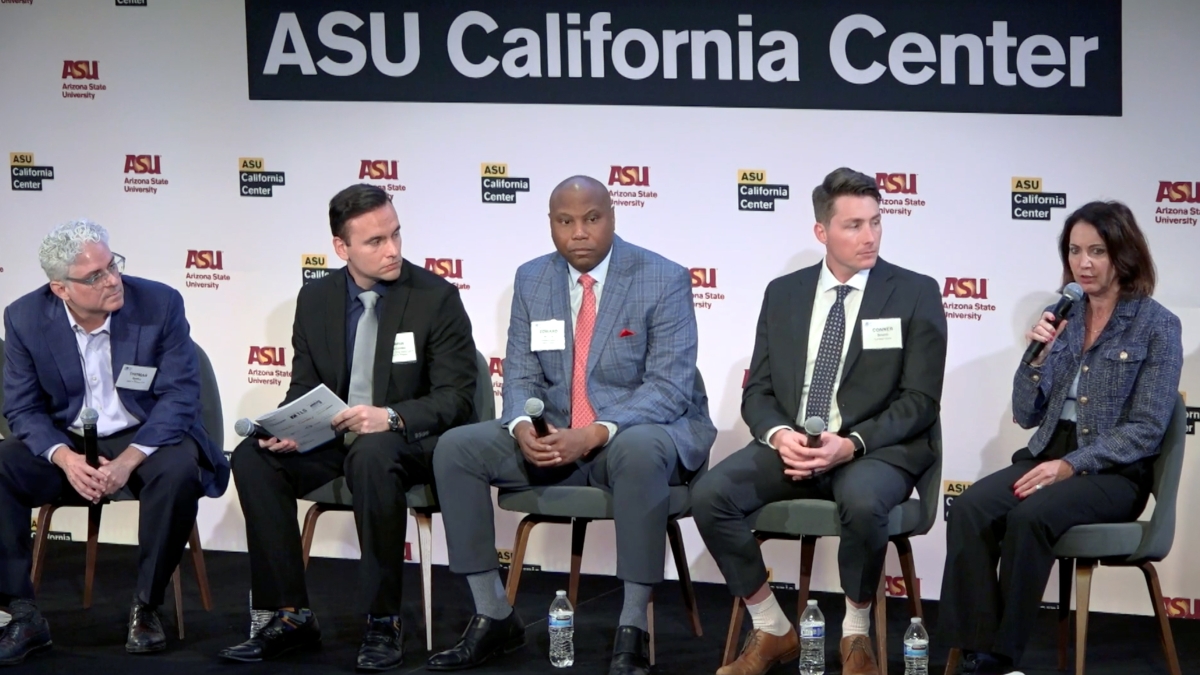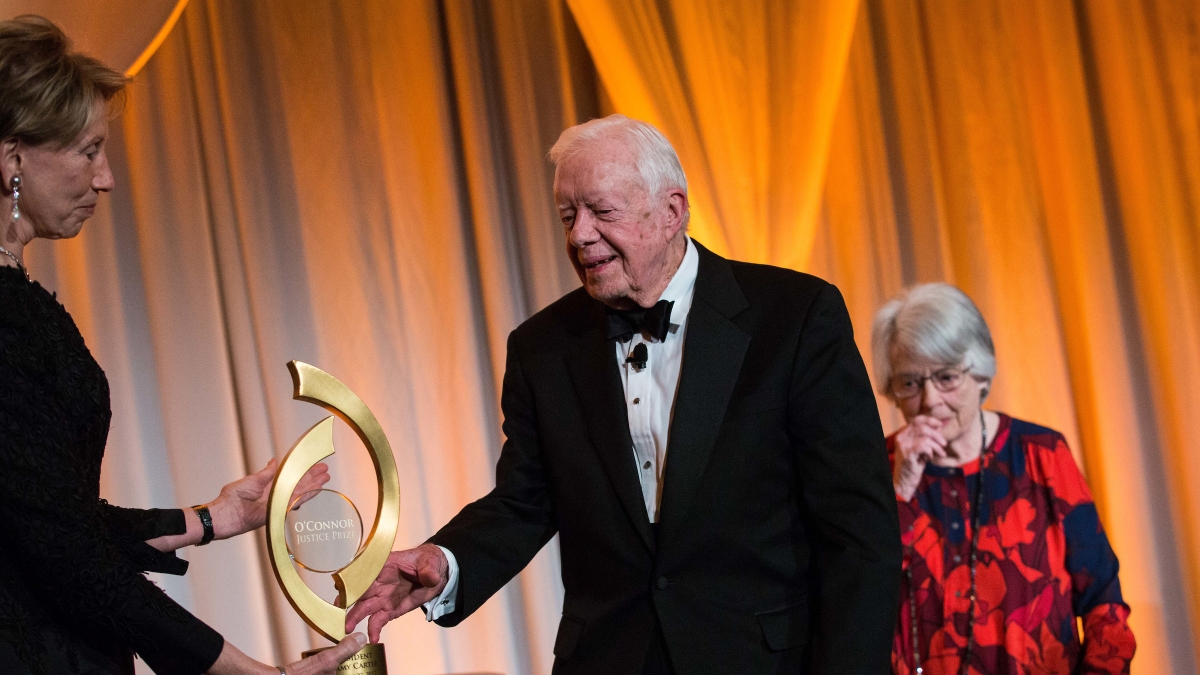Former President Jimmy Carter said Friday that the U.S. should be “a champion of peace,” “human rights” and “generosity,” aspirations he said would stem worries over the country’s future.
“We should be the nation on Earth where anyone who has a conflict or potential for military conflict, they should say ‘Why don’t we go to Washington?’ ” he said shortly after accepting the O’Connor Justice Prize, administered by Arizona State University and named for retired Supreme Court Justice Sandra Day O’Connor.
“The United States is a champion of peace. The United States is a champion of human rights. The United States is a champion of generosity … America reaches out to people in need because we are the greatest country. That’s the kind of super power the United States ought to be.”
Carter, 92, visited Phoenix to accept the honor for his post-presidency humanitarian work. Through his nonprofit, The Carter Center, he has focused on world peace, democracy and disease prevention. He became the first ex-president to win the honor, which recognizes O’Connor’s legacy and efforts on behalf of judicial independence and human rights.
Previous winners include Ana Palacio, a former foreign affairs minister for Spain who worked to incorporate human rights into the fabric of the European Union, and Navanethem Pillay, a former South African judge who fought apartheid.
About 300 people attended the award ceremony at the Arizona Biltmore Hotel.
Patricia Wald, whom Carter appointed as a federal appeals court judge, presented the award while O’Connor applauded with the audience.
“His achievements out of office is just as impressive as his achievements while in office,” Wald said, adding that his integrity and honesty restored trust in government in the wake of the Watergate scandal.
She also noted his international legacy, saying “he has sincerely earned his title as the ‘human rights president.’”
Palacio led a brief Q&A session with Carter, ranging from world peace to women’s rights.
“Peace, justice and human rights have been the guiding light of our organization from the beginning,” Carter said. He added human rights must be “fair, honest and vigorously pursued.”
Carter said one of his proudest accomplishments in office was appointing more women as federal judges than all previous presidents combined.
At the time, he said, “it wasn’t easy to find women who were qualified for their service in the judicial system, because there were not deans in law schools and not heads of law firms” who were women.
Carter served as president from 1977 to 1981. During his time in office, he established diplomatic relations with China and forged an arms-limitation deal with Russia.
Since then, he has used his Atlanta-based center to eradicate Guinea worm disease and mediate conflicts in the Middle East and North Africa. He also supports human activists by appealing on their behalf to world leaders.
He said the idea for the center was seeded at Camp David in 1978 while negotiating a peace treaty between Egypt and Israel.
“We felt like we could offer our mediation services to the world, and we began to do that,” Carter said. “I soon realized that was just one aspect of it … later we expanded our horizons a little bit to fill all the vacuums in the world.”
Last year, the center focused on advancing the peace process in Sudan, fighting malaria in Haiti and the Dominican Republic, and monitoring the presidential election in Zambia.
Carter said he has observed and monitored more than 100 elections around the world.
His center’s mission is “guided by a fundamental commitment to human rights and the alleviation of human suffering.”
The former Georgia governor, Navy veteran and peanut farmer won the 2002 Nobel Peace Prize for his “decades of untiring effort to find peaceful solutions to international conflicts, to advance democracy and human rights, and to promote economic and social development,” according to the Nobel Foundation’s website.
The 86-year-old O’Connor watched the ceremony from a wheelchair in the front row.
Carter thanked her, calling the former justice a “great hero” and one of his “favorite fly-fishing companions.”
“I didn’t always agree with everything that Ronald Reagan did,” Carter said, “but selecting her as a justice was one of the best decisions he ever made.”
Photo by Deanna Dent/ASU Now.
More Law, journalism and politics

TechTainment conference explores the crossroads of law, technology, entertainment
What protections do writers, actors, producers and others have from AI? Will changing laws around name, image and likeness (NIL) eliminate less lucrative college sports programs?And what does…

How to watch an election
Every election night, adrenaline pumps through newsrooms across the country as journalists take the pulse of democracy. We gathered three veteran reporters — each of them faculty at the Walter…
Law experts, students gather to celebrate ASU Indian Legal Program
Although she's achieved much in Washington, D.C., Mikaela Bledsoe Downes’ education is bringing her closer to her intended destination — returning home to the Winnebago tribe in Nebraska with her…
